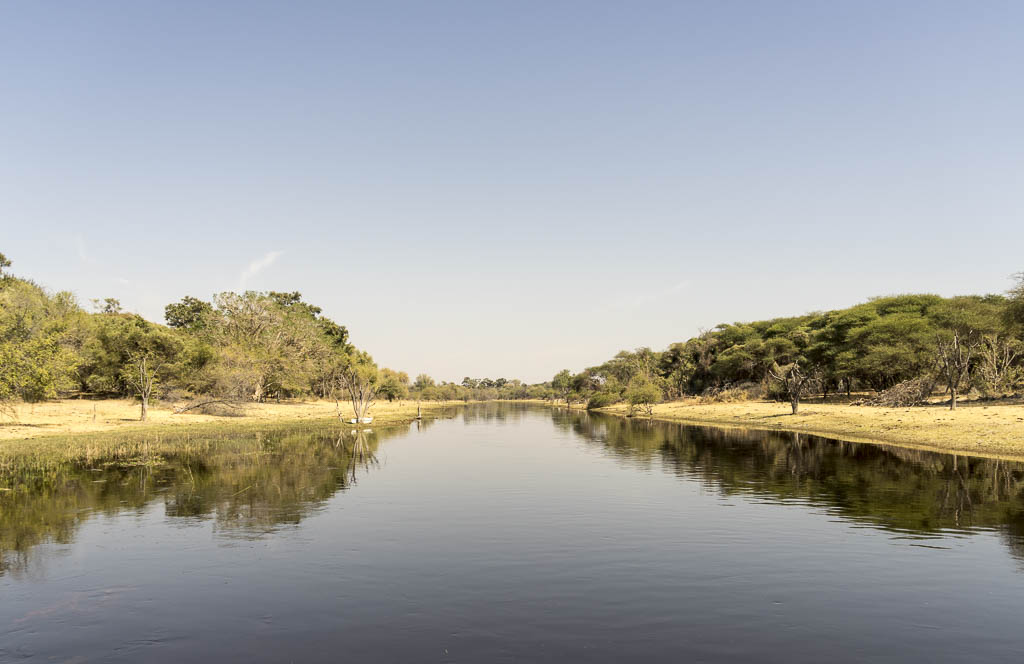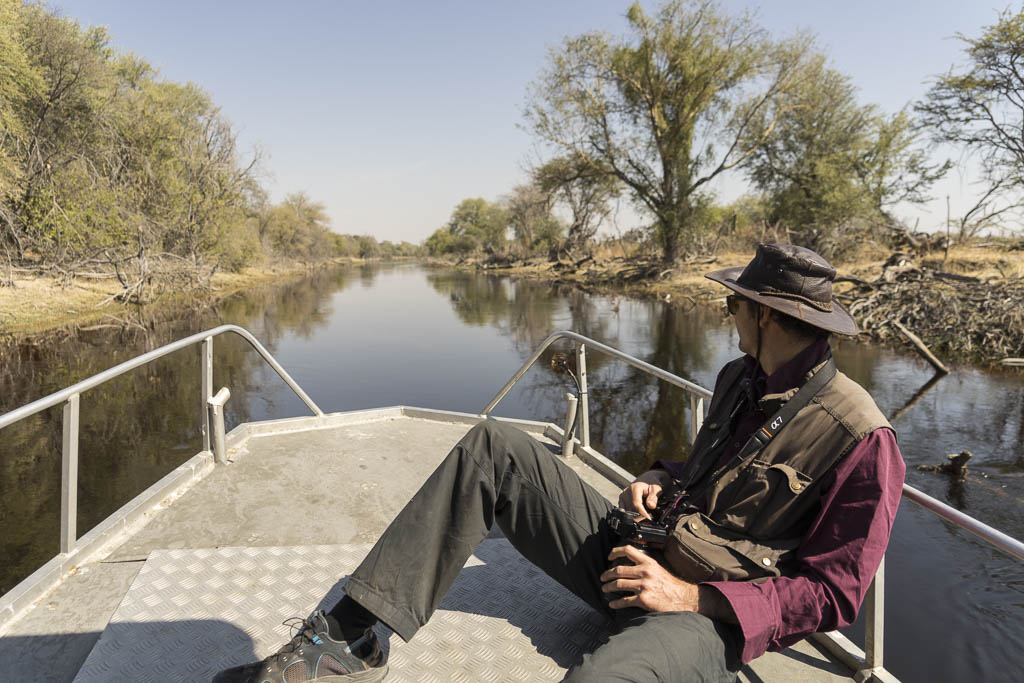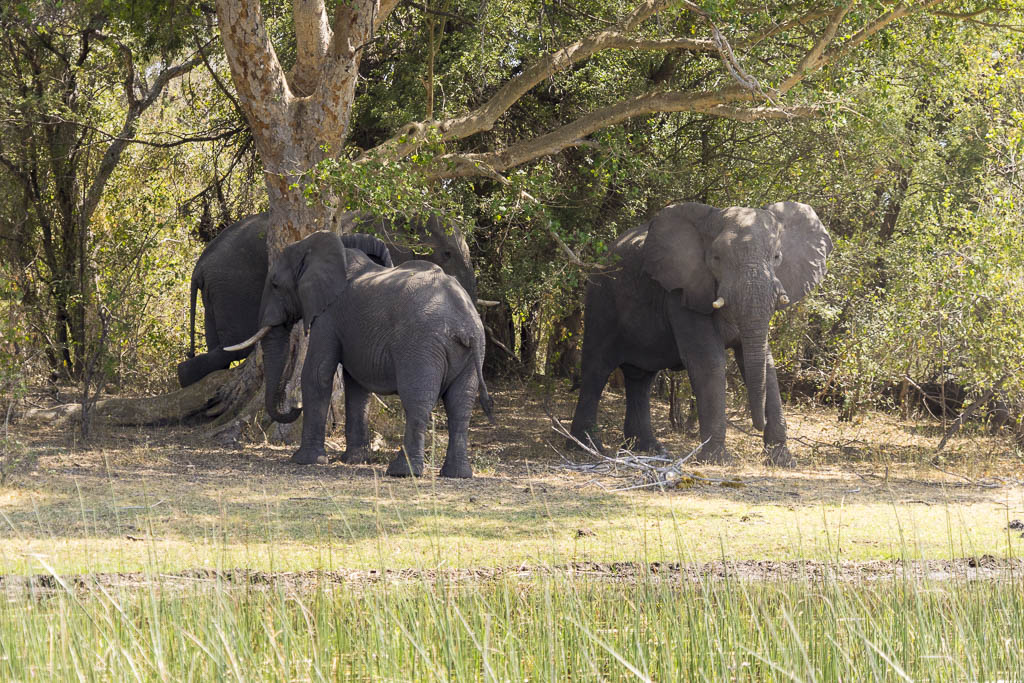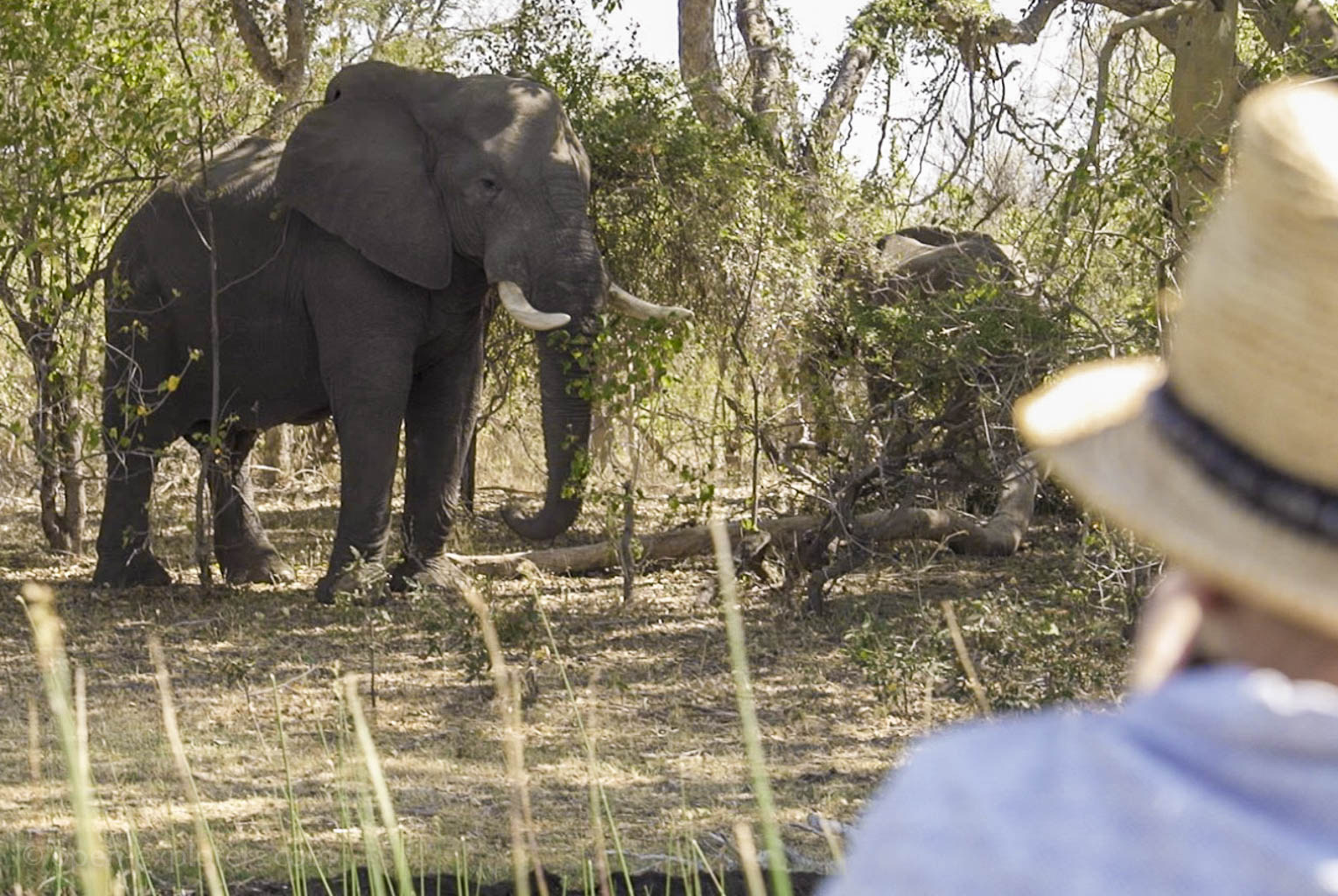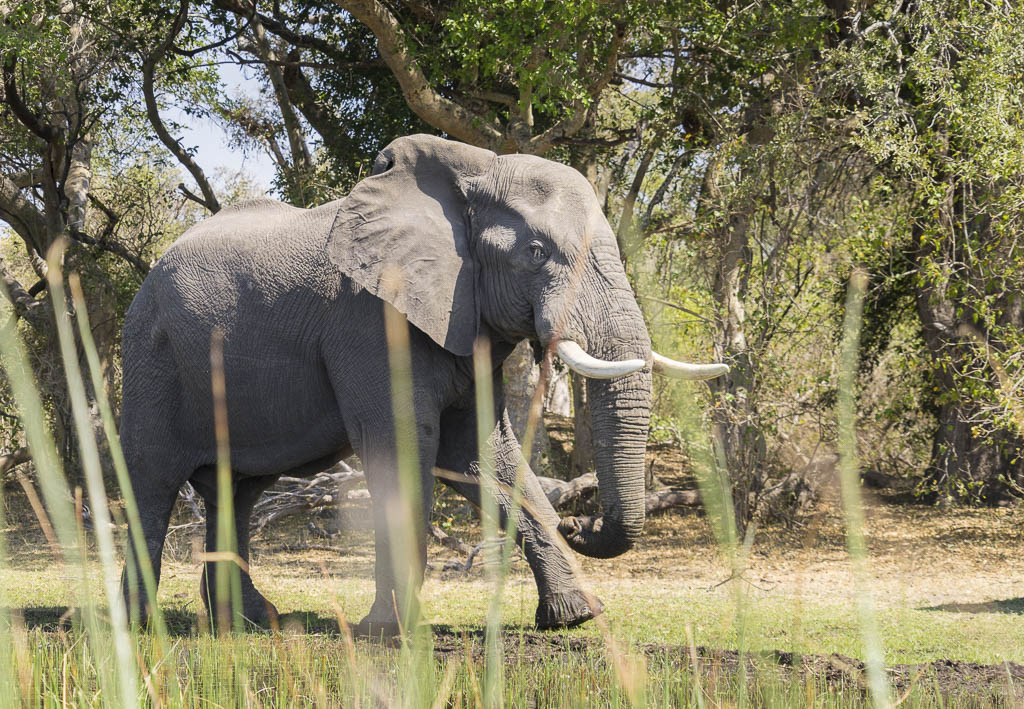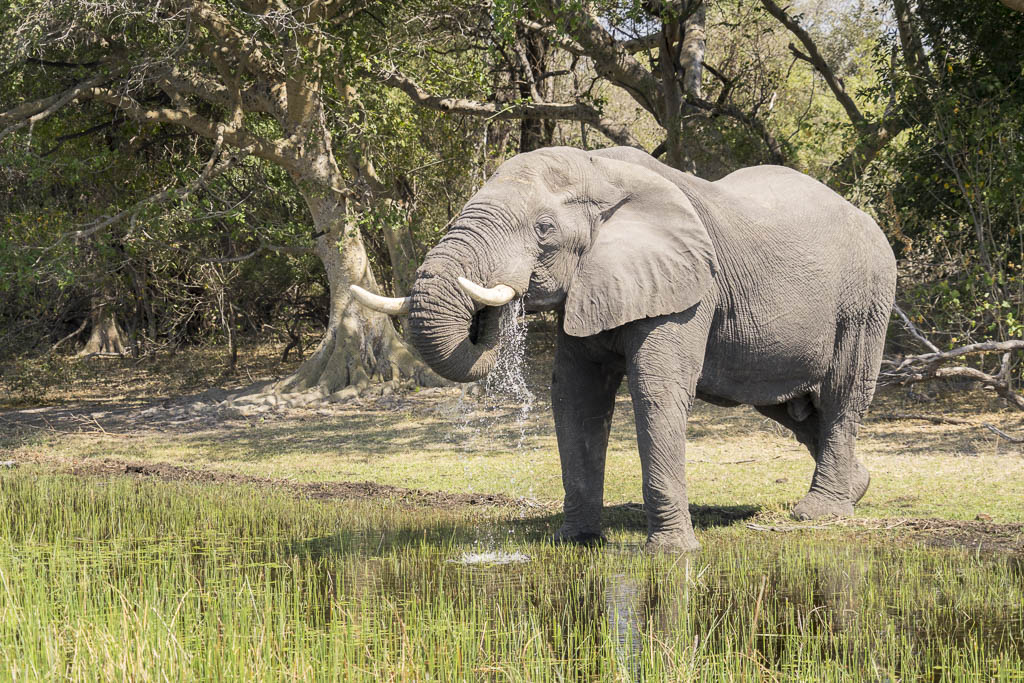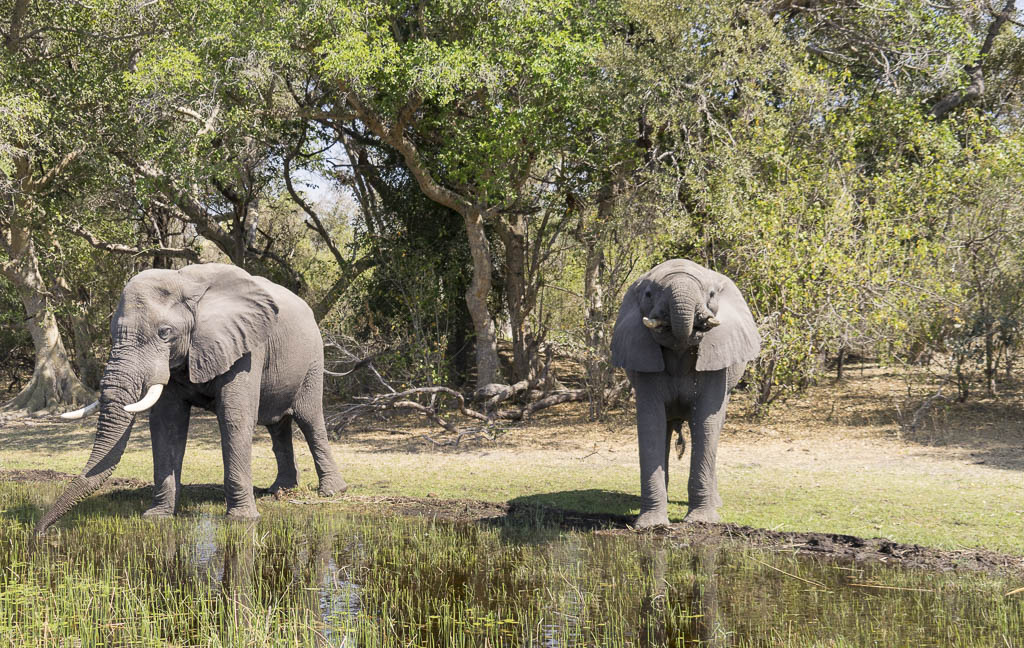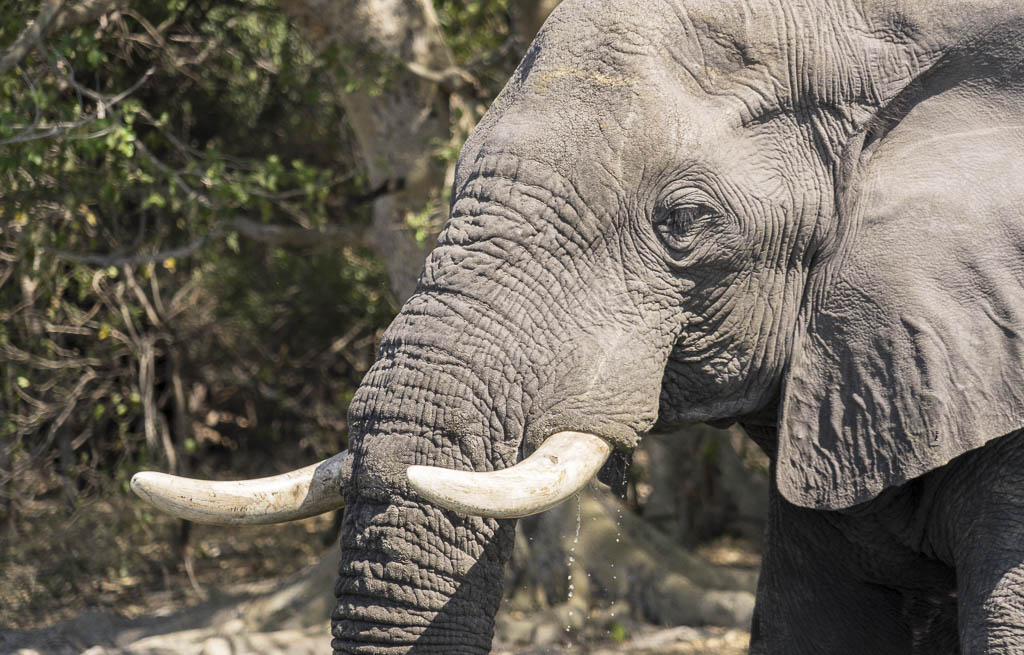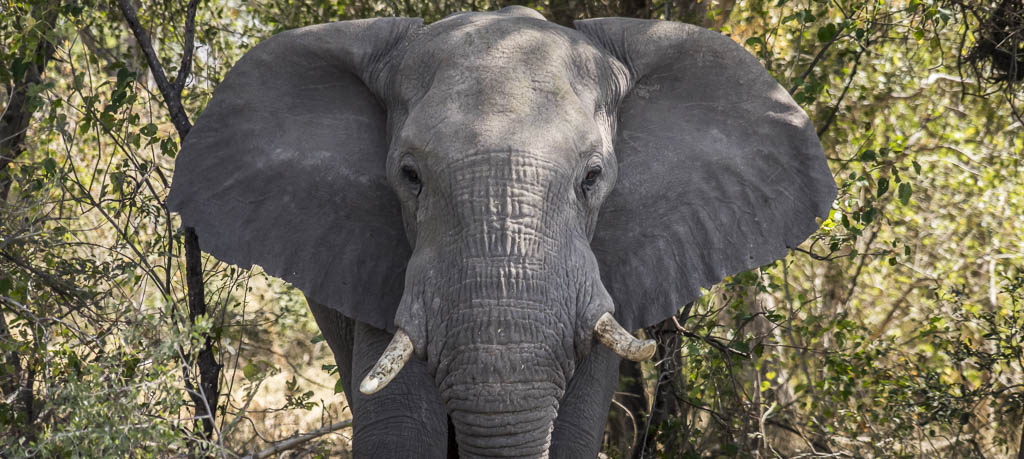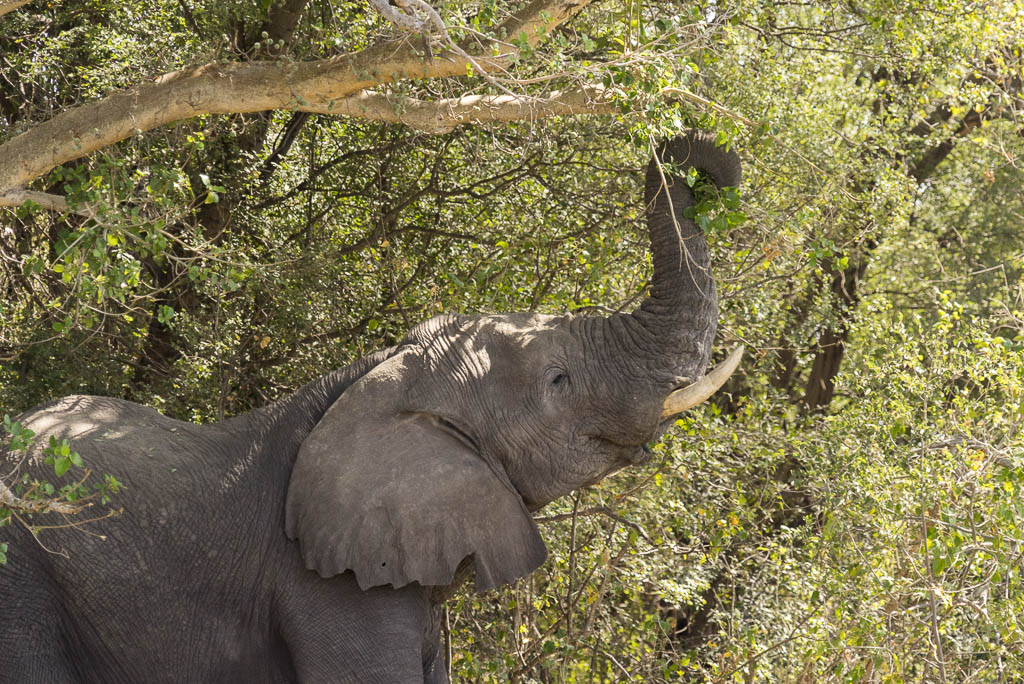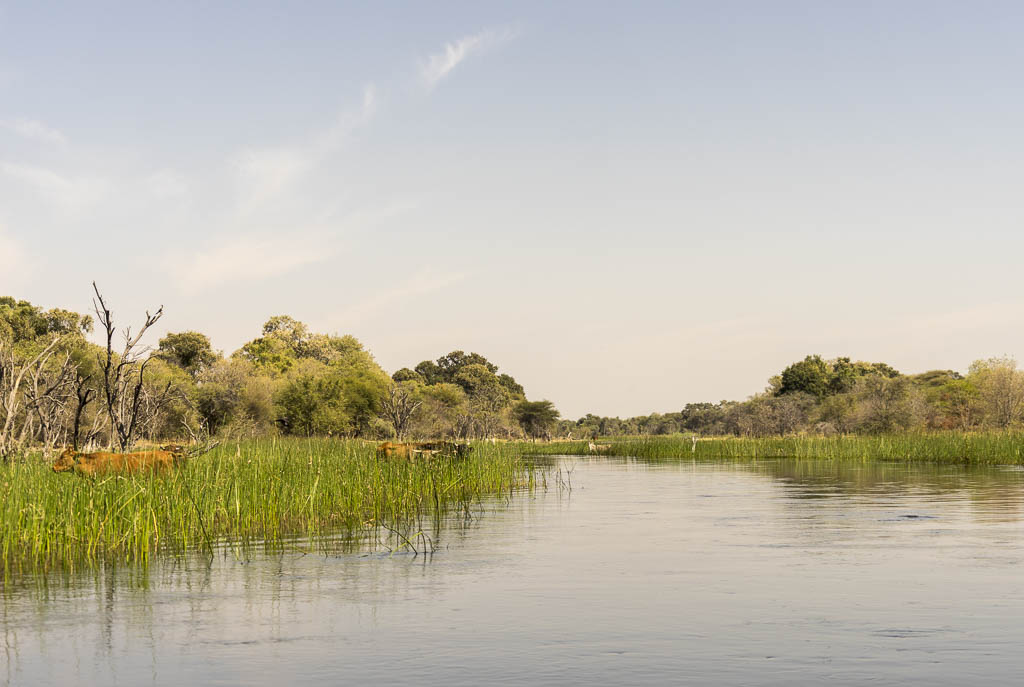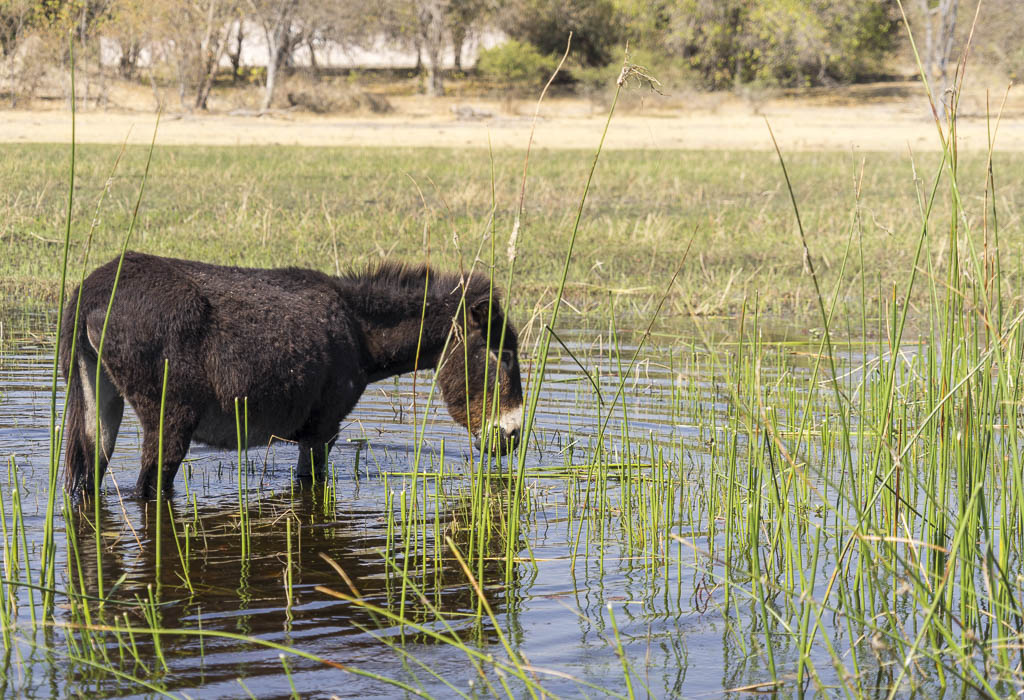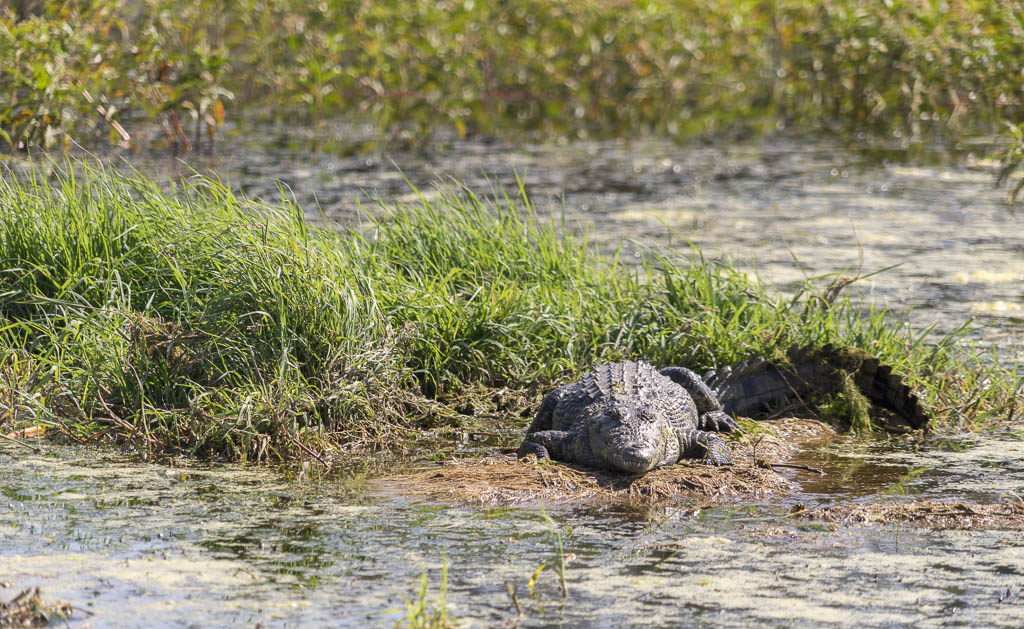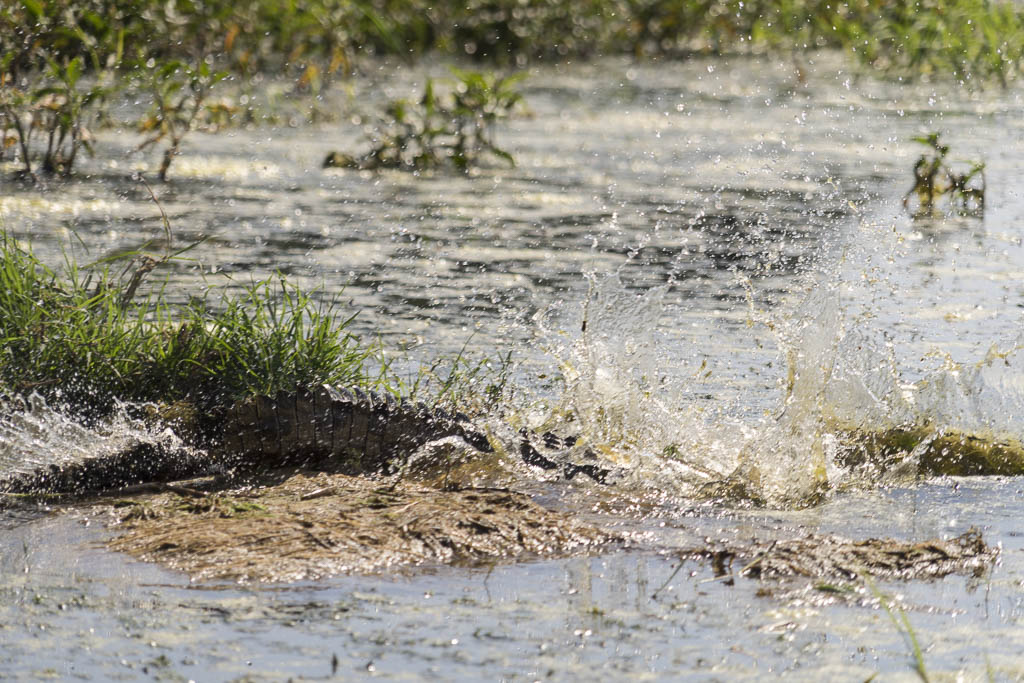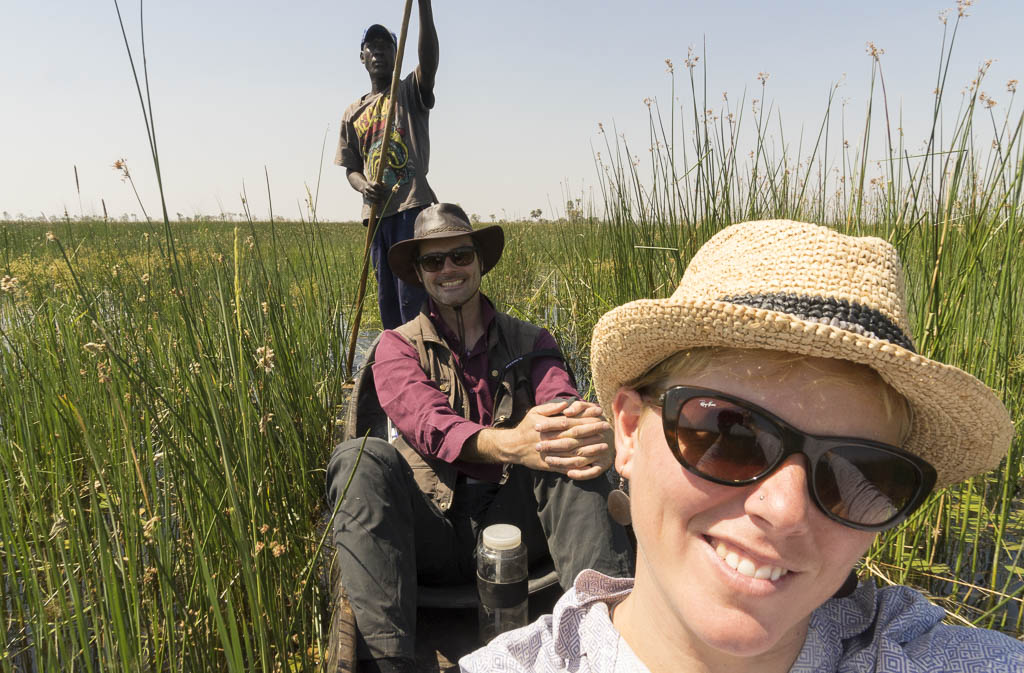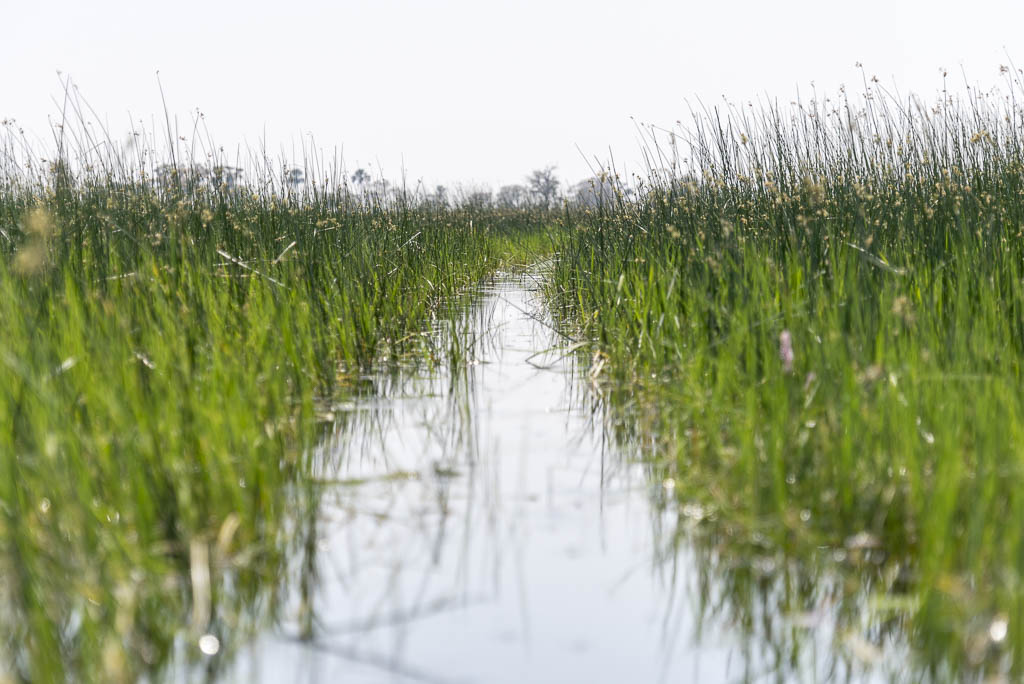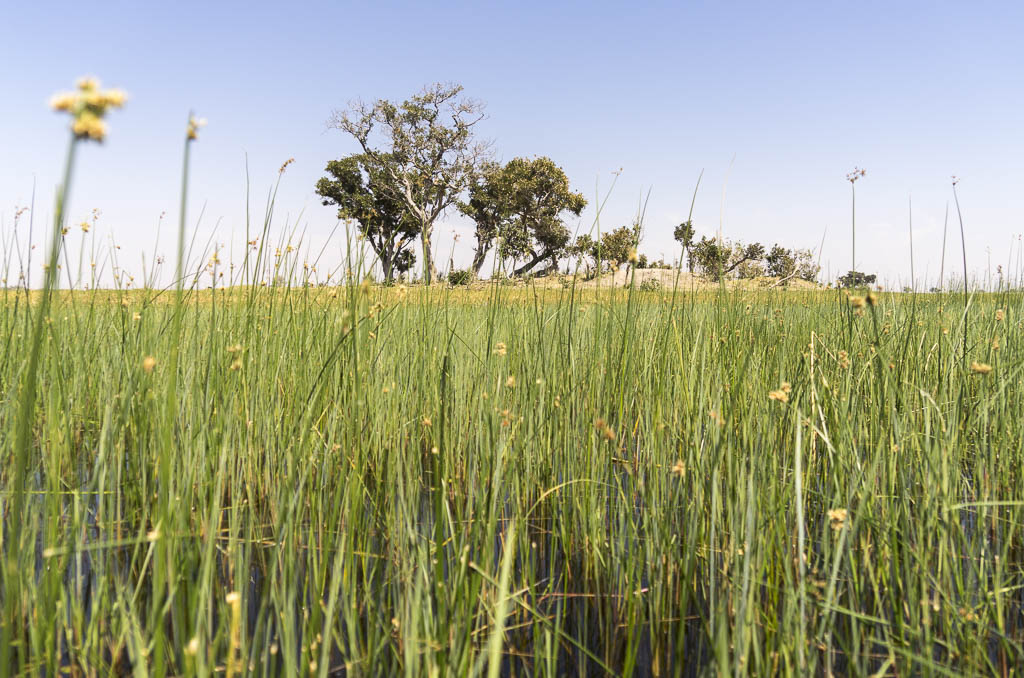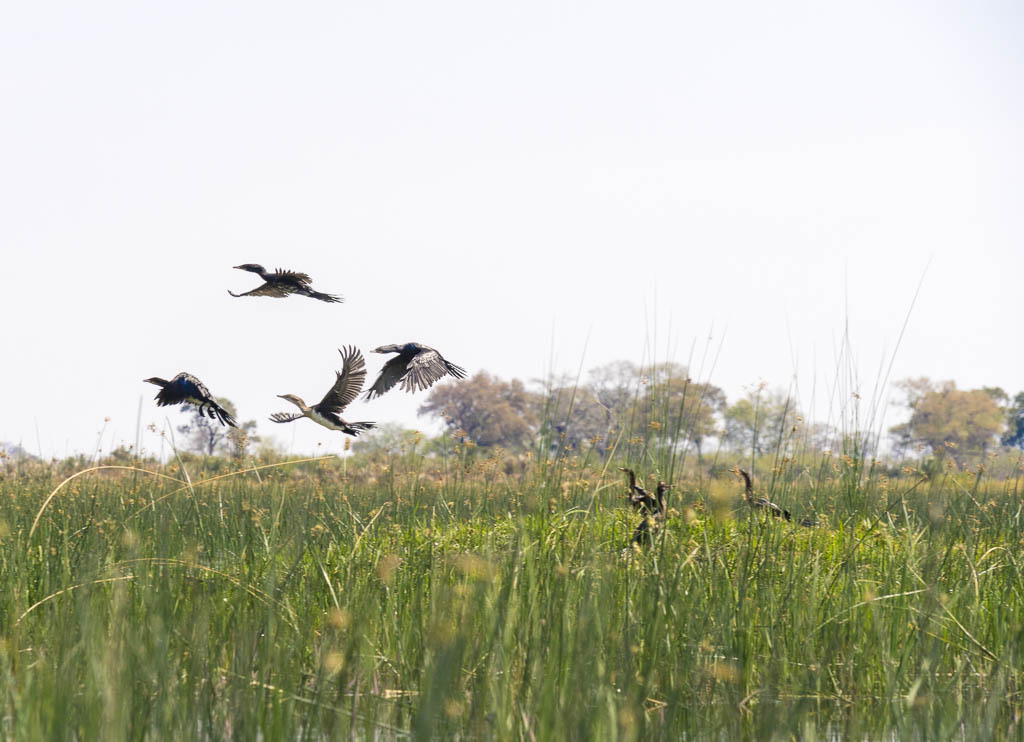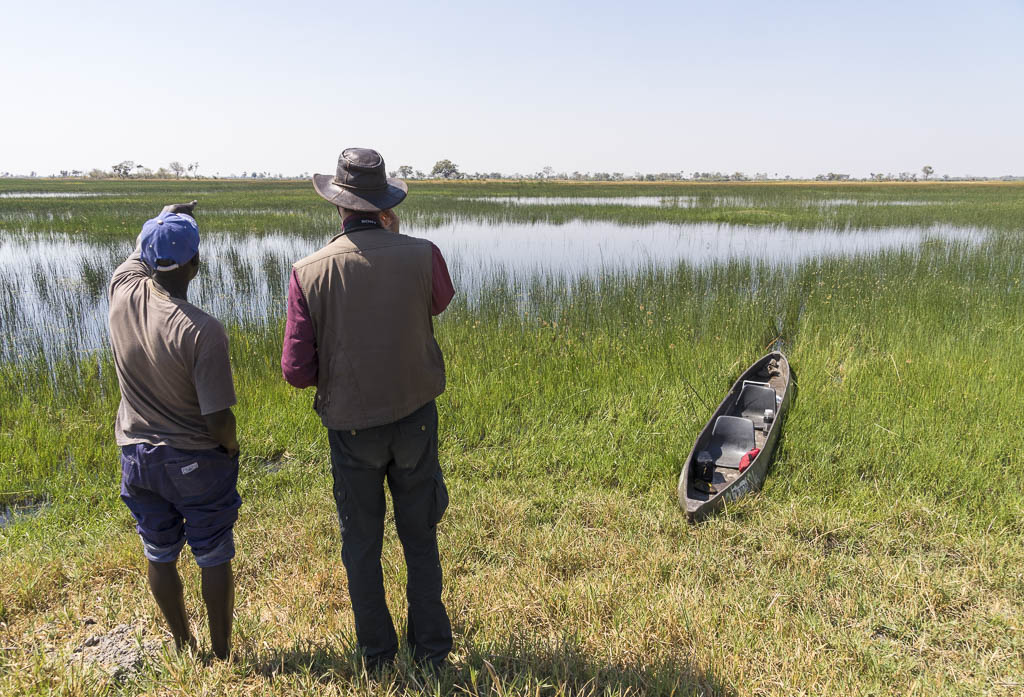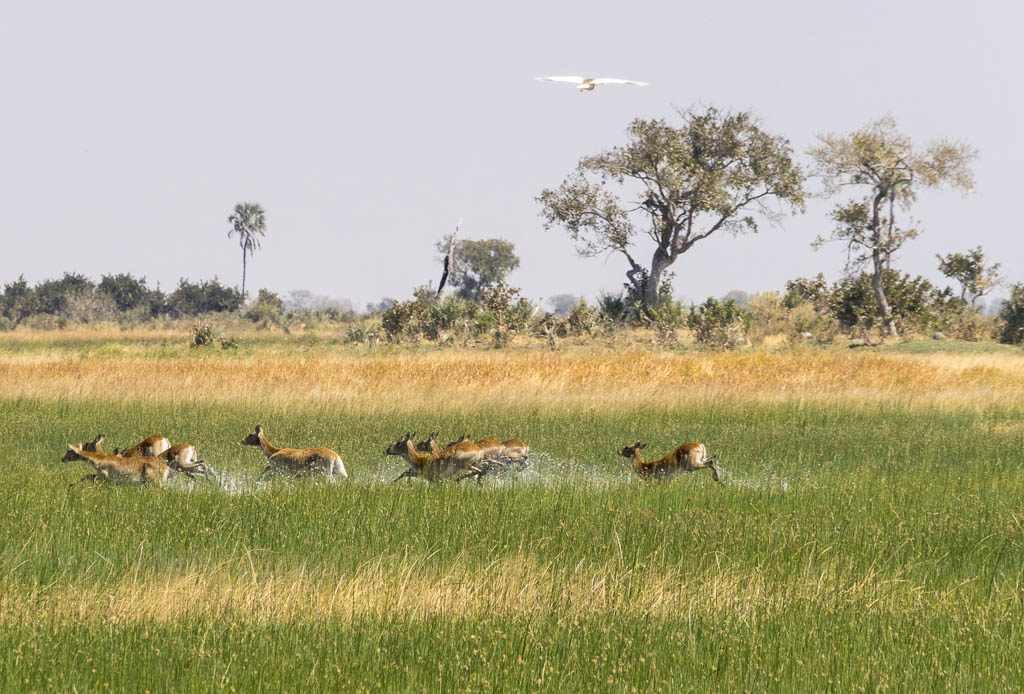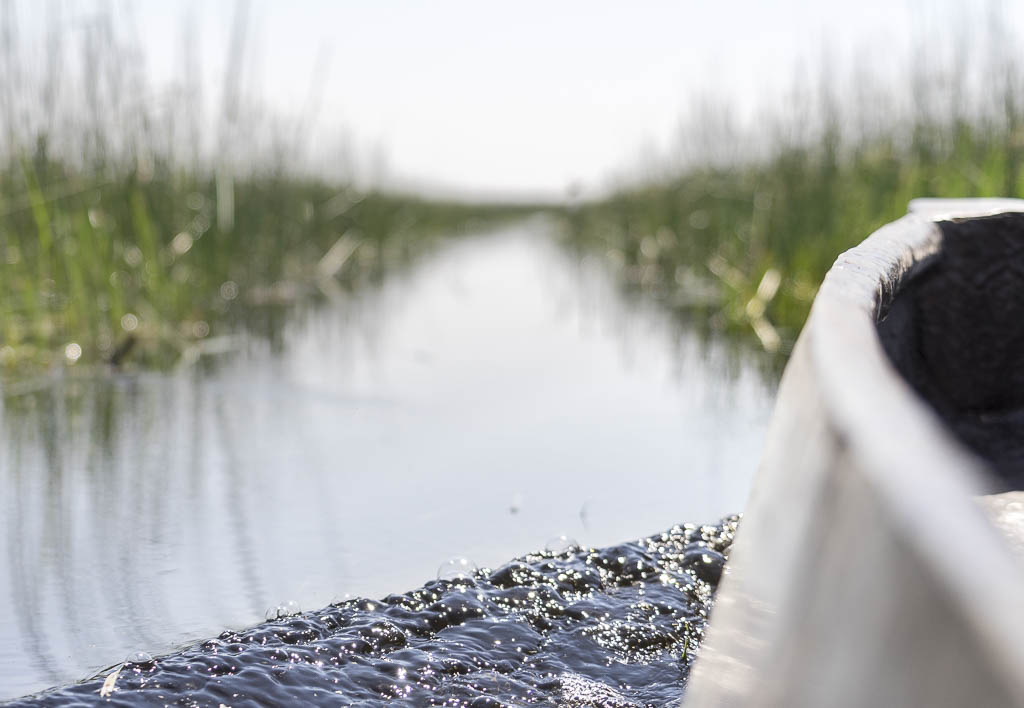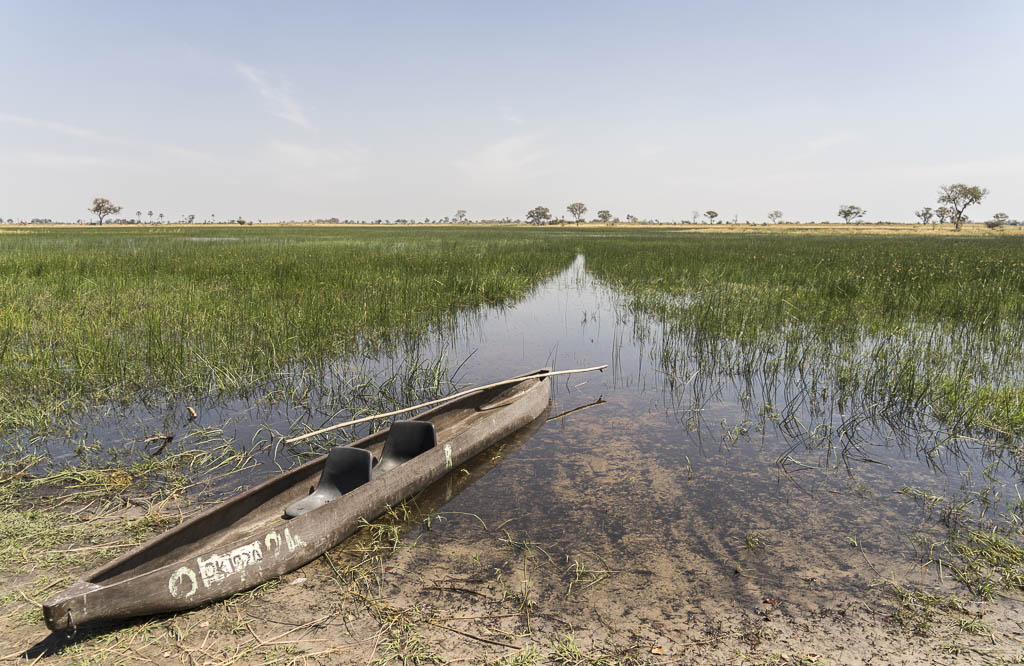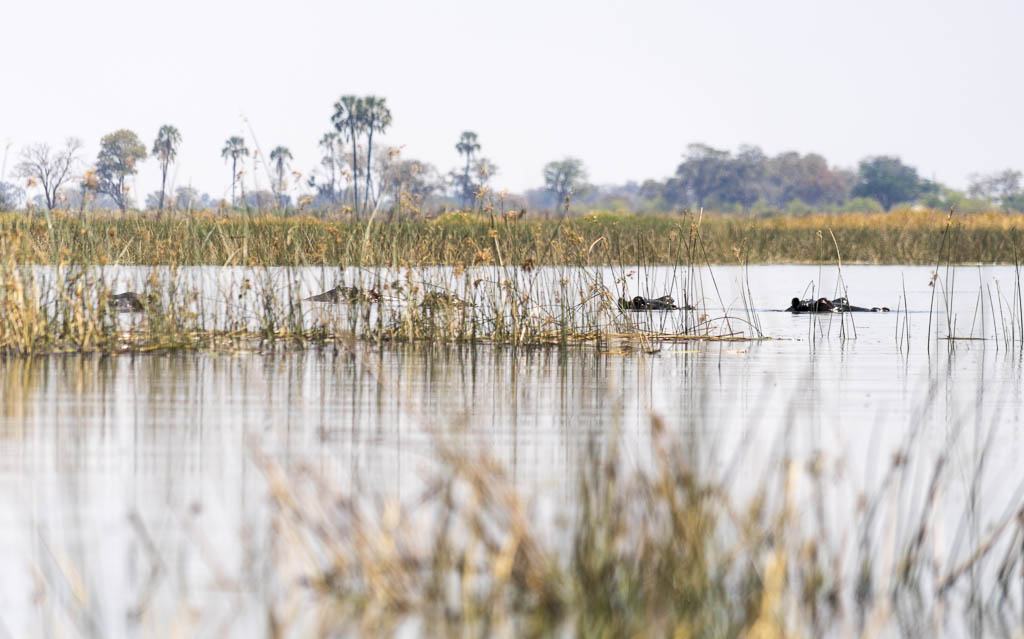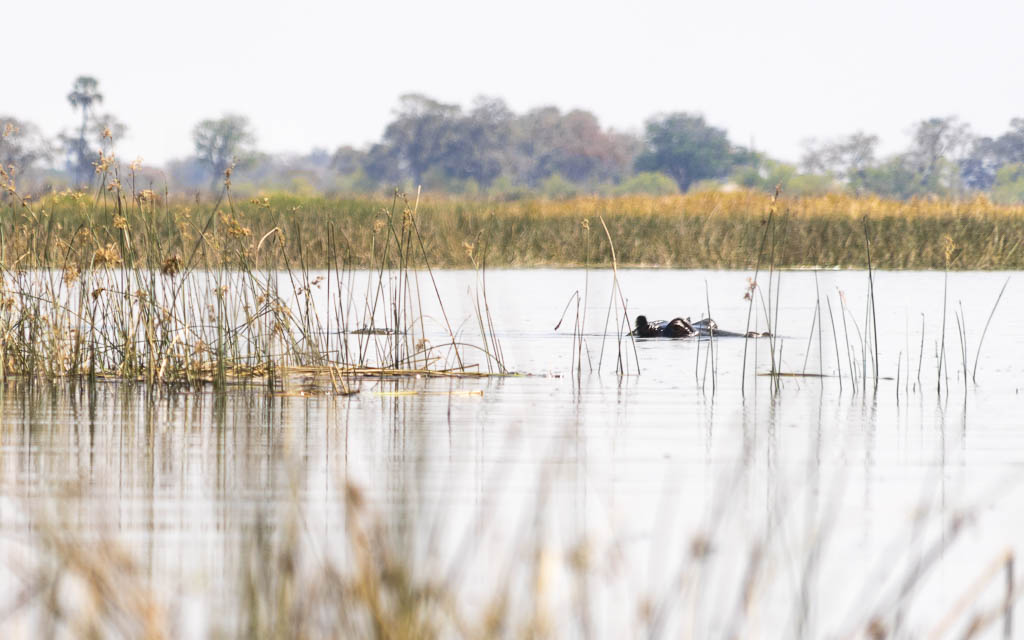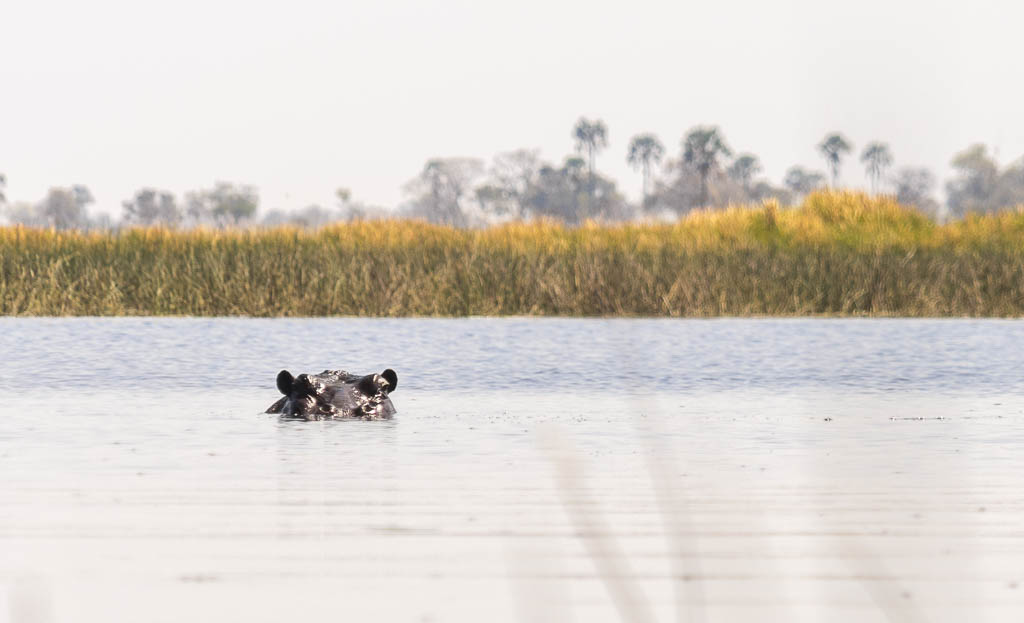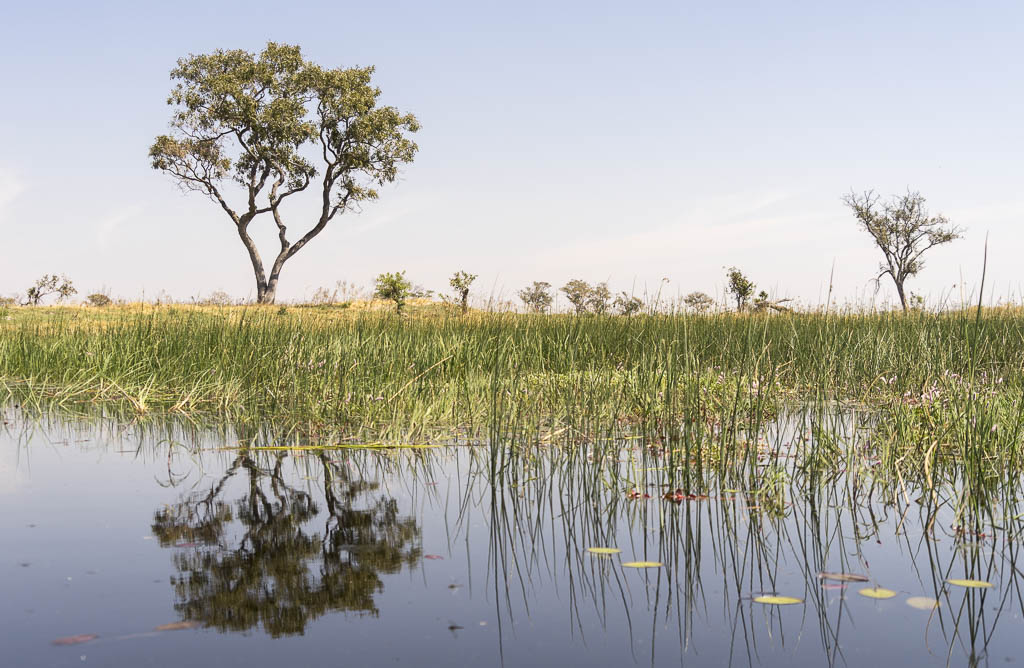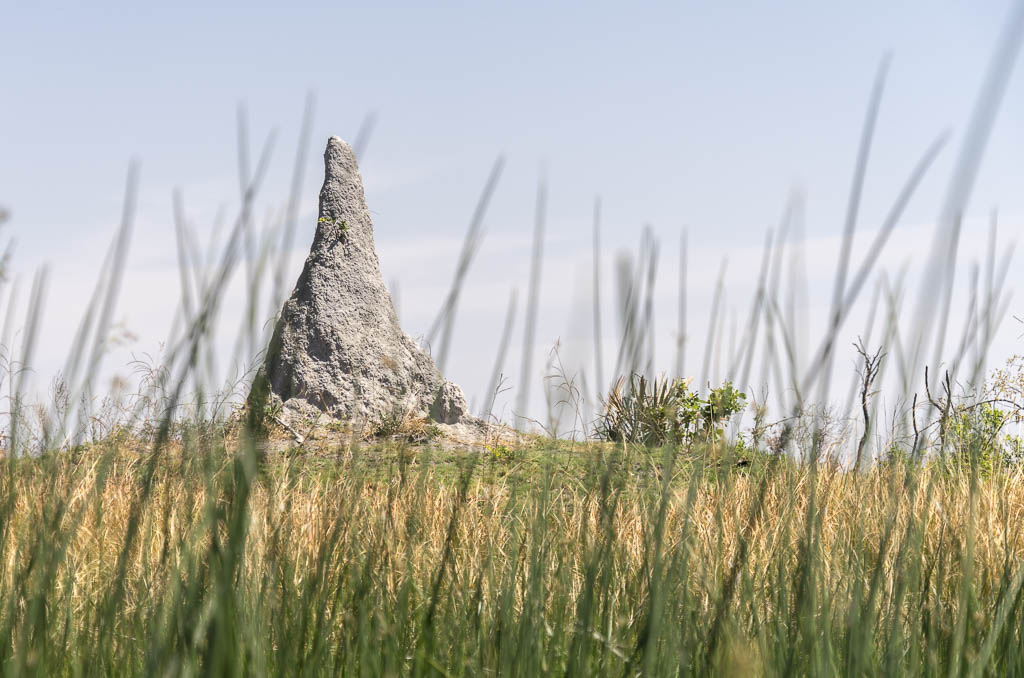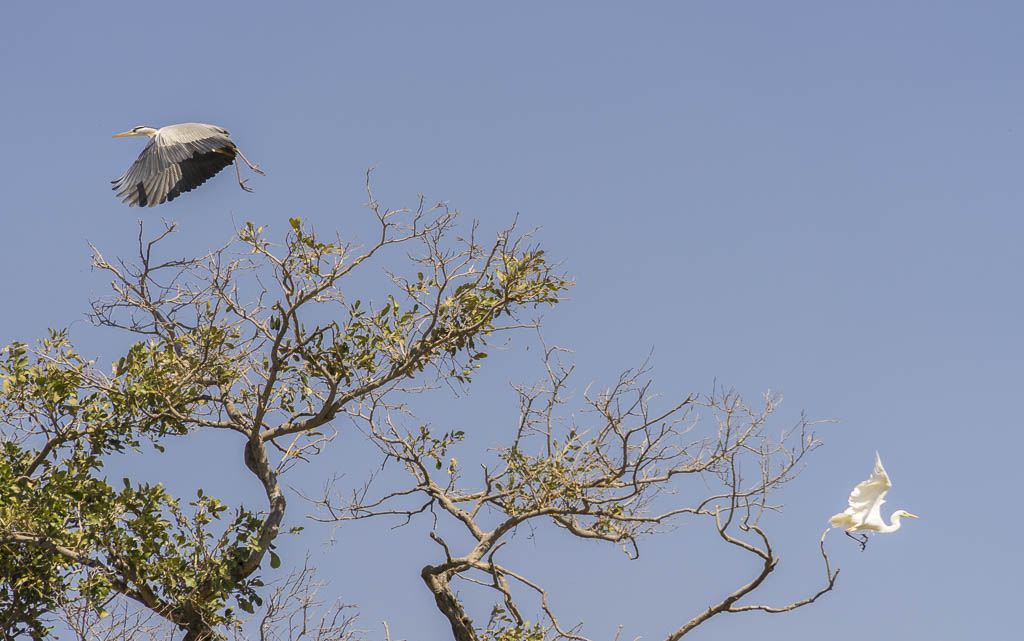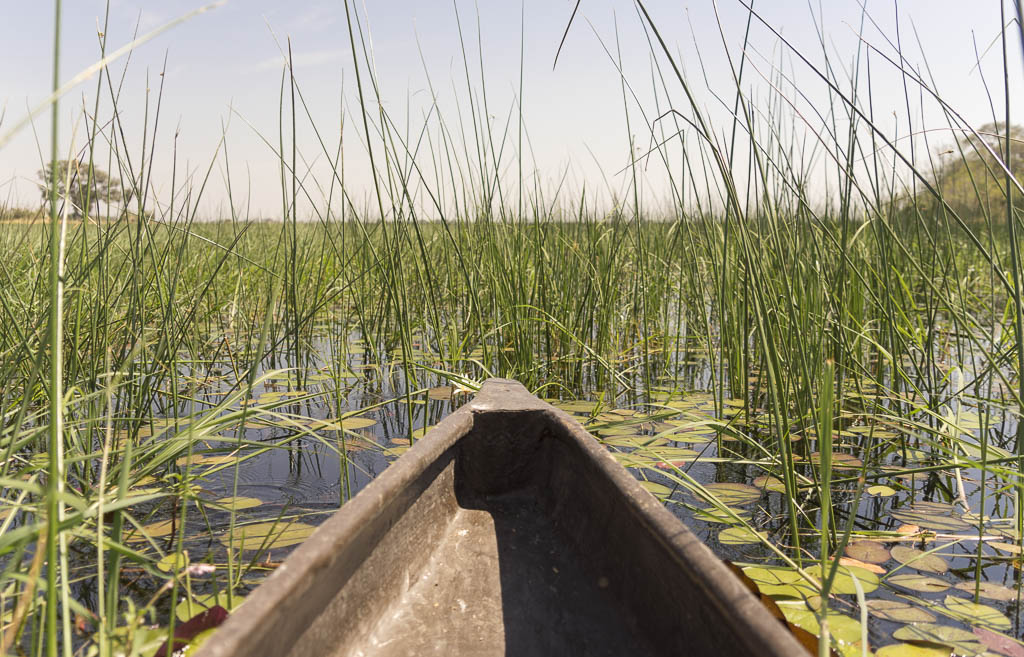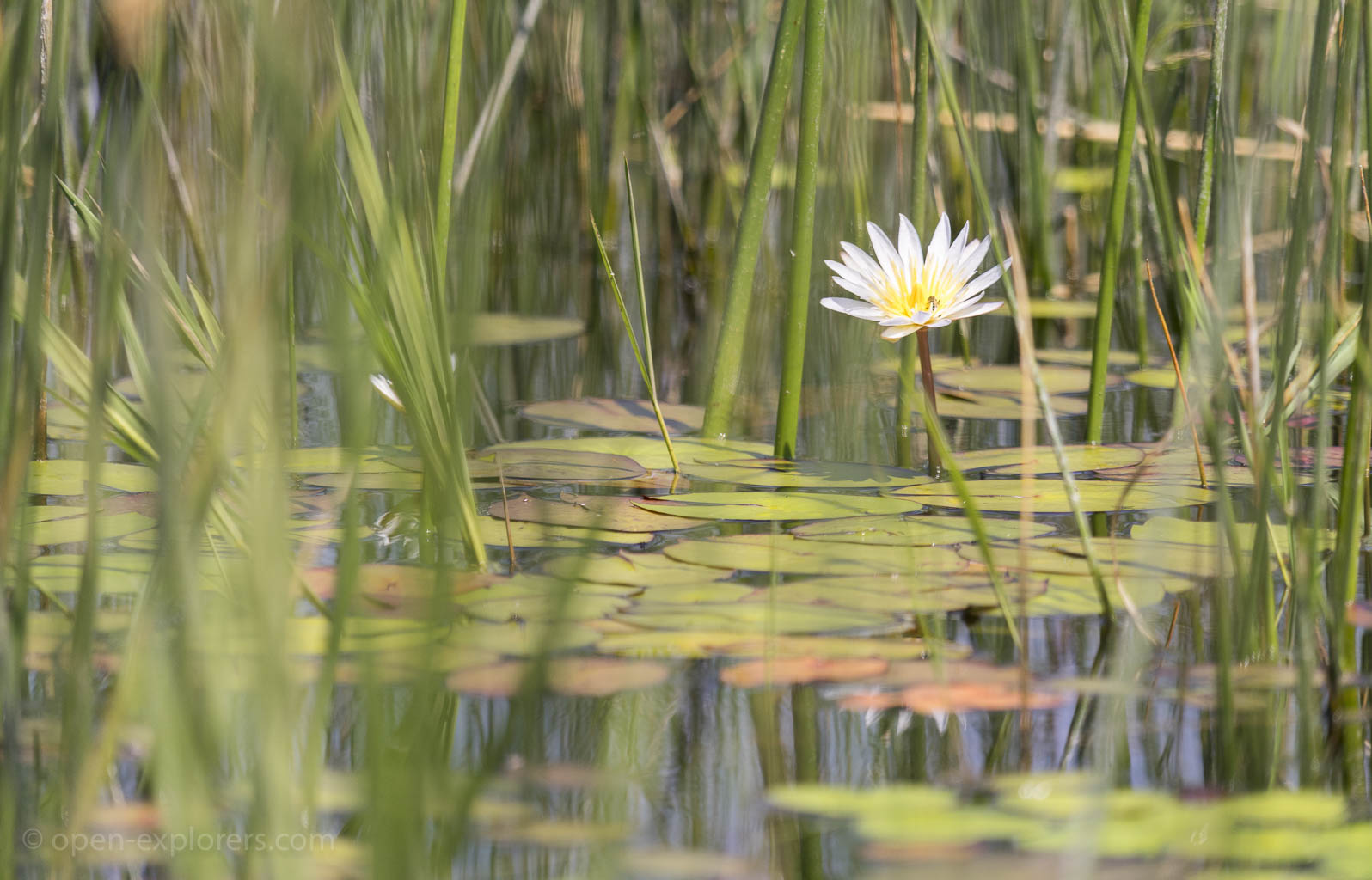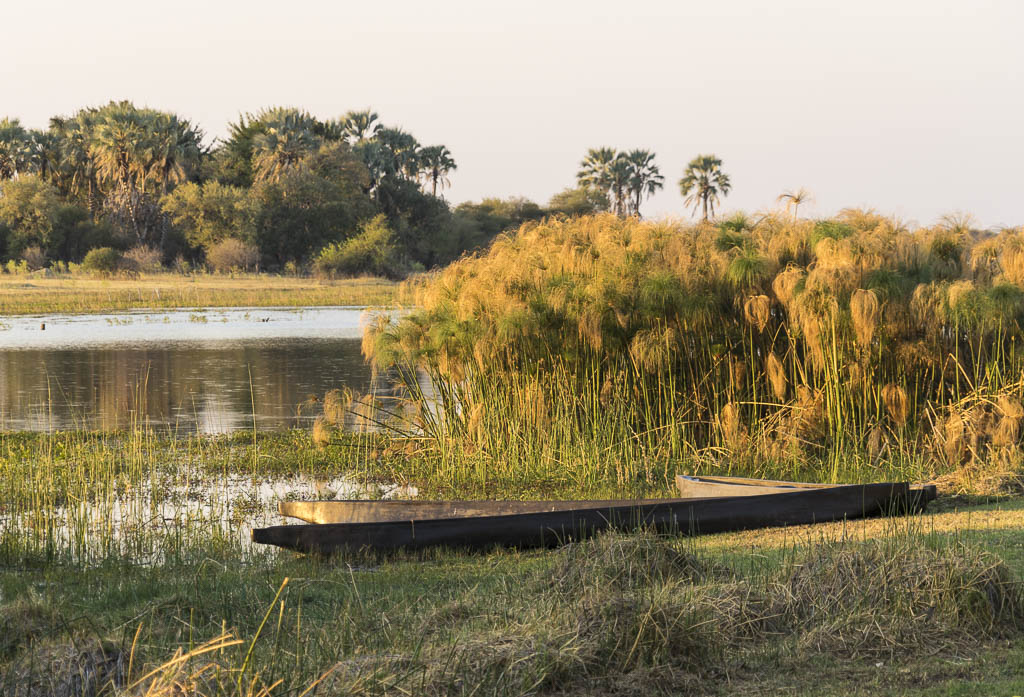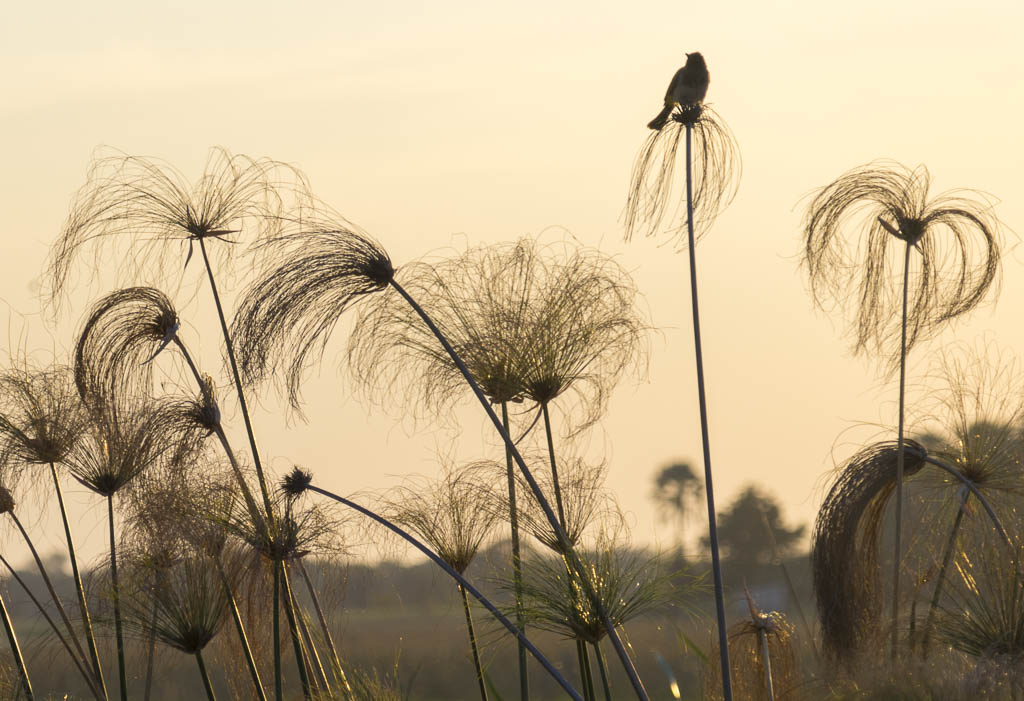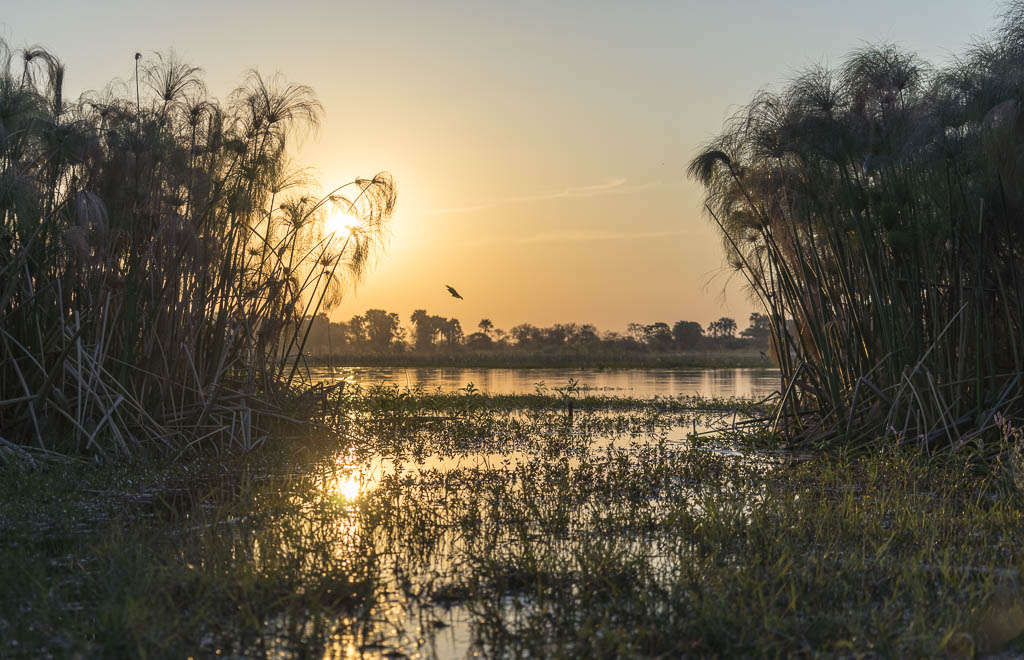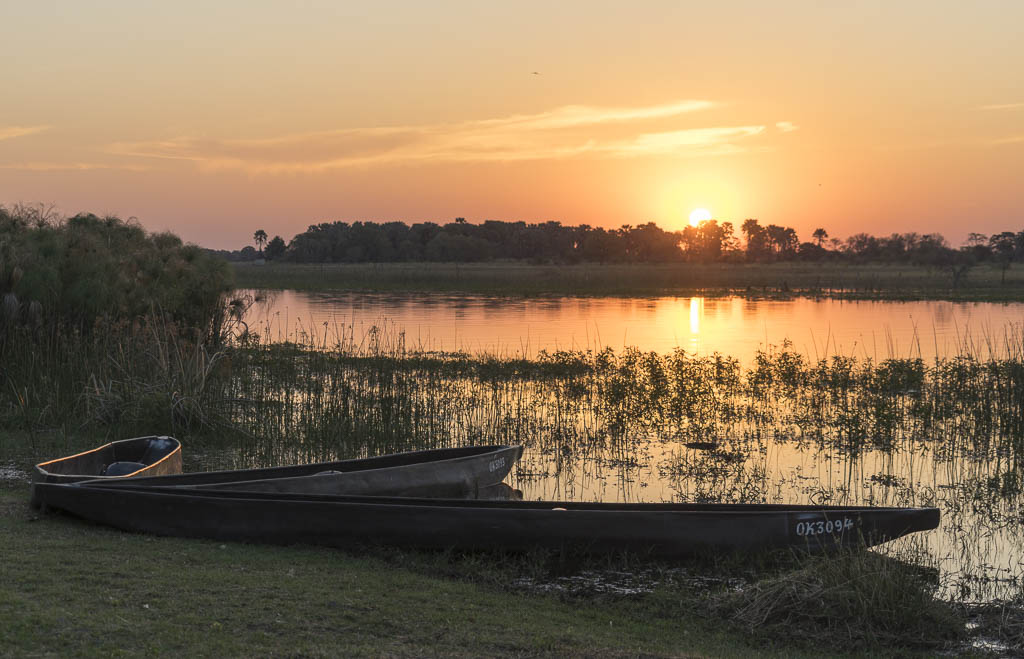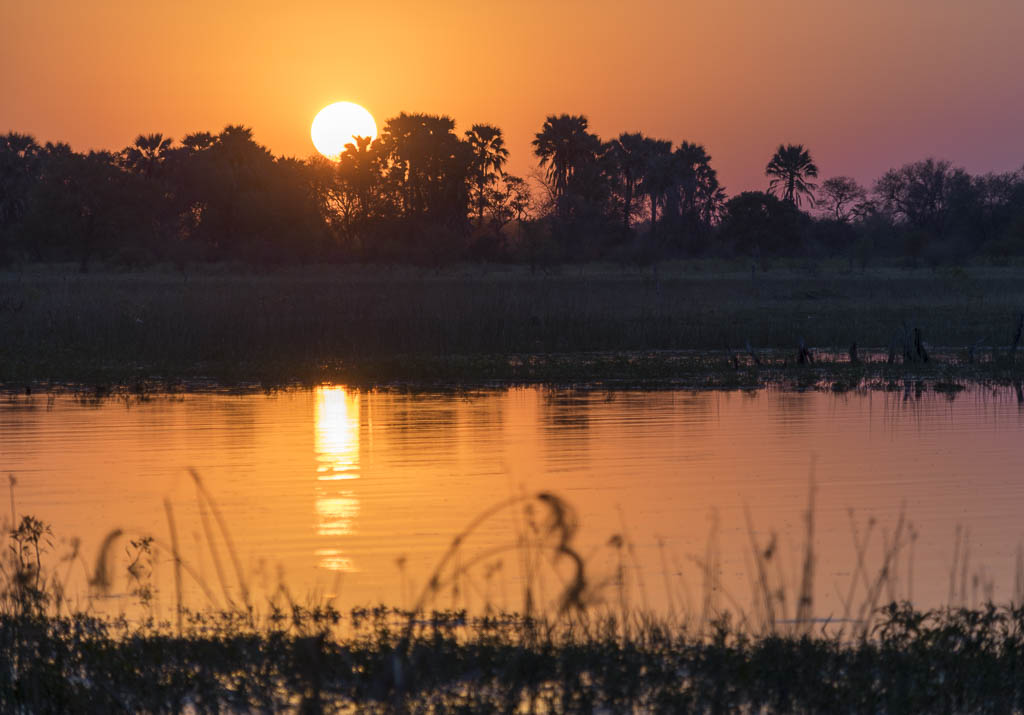Day 870-871 - Magical wildlife encounters
The Okavango Delta is a vast inland delta in midst the semi-arid Kalahari basin. At peak times is covers an area of about 20.000 km² (7.700 square miles). Interestingly, this happens during the time when the rest of Botswana finds itself in the dry season, like right now. This is due to the fact that the Okavango river has it’s source in the Angolan highlands some 1.600 km north of the delta. There, the river is called Cubango. The water spends one month travelling to the beginning of the delta and then another 3-4 months until it has spread out throughout the whole area of it. The delta is a patchwork of rivers, lakes, islands and seasonally flooded swamps and the vegetation is so thick that sometimes it’s hard to tell whether it covers solid ground or not. Especially now during the dry season the animals flock to the waterways to drink. Thus, there is lots to see for us. And that’s best be done from aboard a boat.
Without being aware of it we let ourselves in for a rather pricy tour. But that did have the advantage that we had the boat and it’s driver all to ourselves. In the beginning we travelled at a swift speed along the more open and wide waterways until we reached the core zone of the Moremi Game Reserve. There, we changed from the motor boat to a traditional dugout canoe, a so-called Mokoro. As we cruised along we watched plenty of cows, horses and donkeys standing knee-deep in the water and feeding under water. A rather peculiar sight. A rather spectacular sight awaited us not much later when I spoted a group of five elephants on the river bank. The driver slowly steered the boat towards them and then turned off the engine. We were sitting in total awe for the giants, only about 10 meters away from them. They were in the middle of feeding and weren’t bothered by us at all. But they always did keep an eye on us. The largest one of the group was digging around with his trunk high up in the tree and all of a sudden we heard a loud cracking noise as he broke off a branch as thick as a thigh. Seems like he wanted to show us who’s the boss. After that he came trotting over to the water and started drinking. We must have been sitting there for 20 minutes or so, and I could have kept watching a lot longer. But the trees deper in the forest seemed to be more interesting now and the group slowly started to recede towards them.
Shortly after we swaped boats and therefore our perspective. Now we were sitting right above the water and glided noiseless through the tall seagrass. There was a constant buzz of little yellow dragonflies around us end every now and then we starteled a couple of birds that were resting somewhere in the grass or on one of the hardly noticable little islands. We got to marvel at more elephants, this time from further away, and a herd of some sort of water antelopes. We must have frightend them and they darted across the shallow lake splashing up the water. All of a sudden the guide stopped punting and pointed towards something we couldn’t see. Hippos. The canoe floated a bit further and then we too could see them. And above all hear them. At eye-level with us they alternately surfaced and submerged again. Every time half a head would pop out the water it would be accompanied by a loud snorting noise. We watched them for a while but our guide didn’t want to stick around for too long. Apparently hippos are more aggressive than one would think.
Joey
Tag 870-871 - Magische Begegnungen in der Wildnis
Das Okavango Delta ist ein großflächiges Binnendelta inmitten des semi-ariden Kalaharibeckens. Zu Spitzenzeiten dehnt es sich auf bis zu 20.000 km² aus. Interessanterweise passiert das wenn in Botswana eigentlich Trockenzeit herrscht, wie jetzt gerade. Das liegt daran, dass der Okavango Fluß aus dem 1.600 km entferten angolanischen Hochland kommt, wo er noch Cubango heisst. Etwa einen Monat braucht das Wasser bis es den nördlichen Teil des Deltas erreicht hat und dann nocheinmal 3-4 Monate bis es sich im ganzen Delta verteilt hat. Es ist ein Flickenteppich aus kleinen Kanälen, Seen, Inseln und saisonal überfluteten Sumpfgebieten, die teilweise so dicht bewachsen sind, dass man gar nicht sieht ob unter der Vegetation nun fester Boder ist oder nicht. Gerade jetzt in der Trockenzeit ist das Delta die wichtigste Anlaufstelle der Tiere auf ihrer Suche nach Wasser. Demzufolge gibt’s für uns eine Menge zu sehen und das am Besten vom Boot aus.
Unwissentlich haben wir uns auf eine recht preisintensive Tour eingelassen, was allerdings den Vorteil hatte, dass wir das Boot sammt Fahrer ganz für uns allein hatten. Das erste Stück ging’s im zügigeren Tempo über die breiteren Wasserläufe bis zum Kerngebiet des Moremi Game Reservs wo wir in ein sogenanntes Mokoro, ein traditionellen Einbaum, umgestiegen sind. Es war lustig im Vorbeifahren die vielen Kühe, Pferde und Esel knietief im Wasser stehen und unter Wasser fressen zu sehen. Ein eher ungewöhnlicher Anblick. Ein spektakuläre Anblick tat sich schon wenig später auf, als ich am Ufer eine Gruppe von 5 Elefanten entdeckte. Unser Fahrer lenkte das Boot ganz vorsichtig in ihre Nähe und schaltete dann den Motor ab. Auf nur 10 Meter Entfernung saßen wir den Riesen gegenüber und waren total überwältigt von dem Moment. Sie waren mitten im Fressen und ließen sich von uns auch nicht stören, obwohl man genau sah, dass sie uns im Auge behielten. Das größte Tier der Gruppe wurschtelte mit seinem Rüssel weit oben im Baum rum und auf einmal brach er unter gewaltigem Krachen einen oberschenkeldicken Ast ab. Es war als wollte er uns zeigen wer hier der Boss ist. Dann kam er zum Wasser rüber geschlendert und begann zu trinken. Wir haben bestimmt 20 Minuten nur dagesessen und geschaut und hätten das auch noch eine Weile machen können, aber dann schienen die Bäume tiefer im Wald interessanter zu sein und die Gruppe zog sich langsam vom Ufer zurück.
Kurz darauf wechselten wir in das kleine Kanu und somit noch einmal die Perspektive. Jetzt saßen wir direkt über der Wasseroberfläche und glitten lautlos durch das hohe Seegras. Rings herum schwirrten kleine gelbe Libellen durch die Gegend und hier uns da scheuchten wir ein paar Vögel auf die scheinbar irgendwo im Gras saßen oder auf einer der kaum erkennbaren kleinen Inseln. Es gab noch weitere Elefanten, diesmal nur aus der Ferne, zu bewundern und Wasserantilopen, die von uns aufgeschreckt ganz aufgeregt wegsprangen. Und auf einmal hörte unser Guide auf zu staken und deutete auf etwas was wir nicht sahen. Hippos. Das Boot glitt noch ein paar Meter weiter und dann konnten auch wir sie sehen. Und vor Allem hören. Direkt auf Augenhöhe tauchten sie immer abwechselnd auf und ab. Jedes Mal wenn ein Kopf halb aus dem Wasser auftauchte wurde das begleitet von einem lauten Prusten. Allzu lange wollte unser Guide hier aber nicht verweilen, denn Hippos seien aggressiver als man denkt.
Joey
